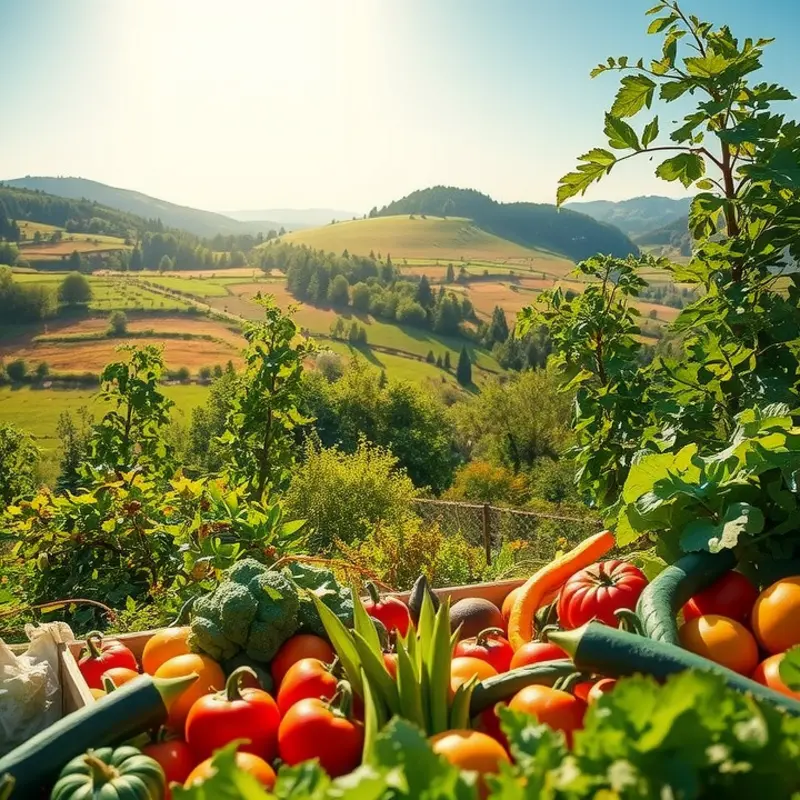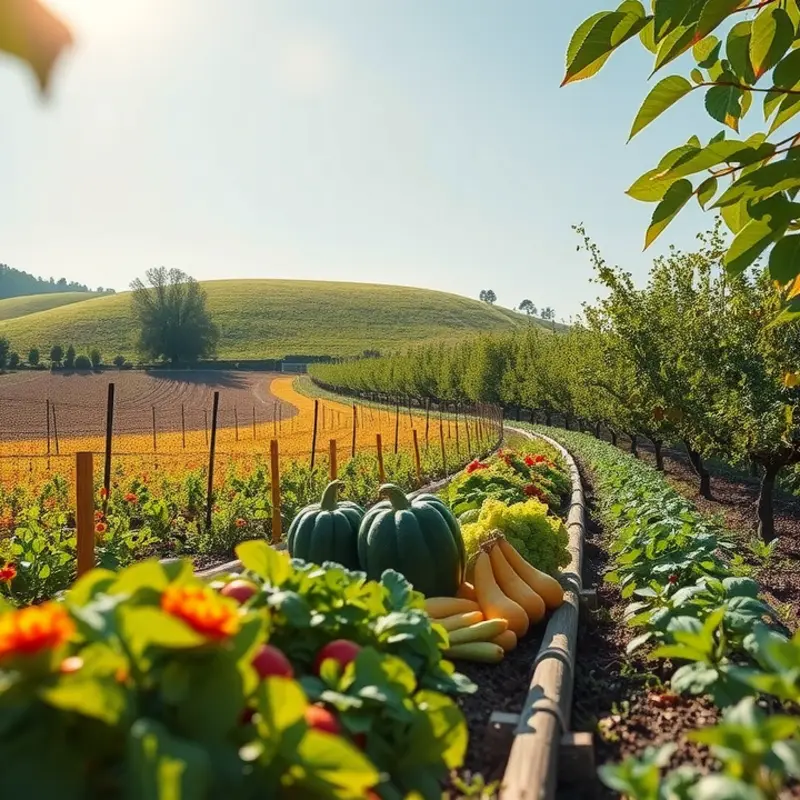An eco-friendly kitchen is a cornerstone of sustainable living. By implementing green cleaning practices using natural ingredients, not only do you maintain a safe cooking environment, but you also contribute to reducing toxic waste and chemical usage. This guide aims to empower you with simple techniques and eco-sensitive products that transform your kitchen into a healthier space for your family and the planet.
Natural Cleaning Agents: Harnessing the Power of Nature

In the pursuit of a sustainable home, swapping out chemical-laden cleaners for natural alternatives is a meaningful step. Various ingredients from your pantry can be transformed into effective cleaning agents that safeguard both your health and the environment. This chapter delves into the wonders of natural ingredients such as vinegar, baking soda, and essential oils, providing recipes to create your own eco-friendly cleaners.
Vinegar: Widely known for its versatility, vinegar is an excellent all-purpose cleaner. The acetic acid content in vinegar effectively removes grime, dissolves mineral deposits, and cuts through grease. Mix equal parts of water and vinegar in a spray bottle for a multipurpose cleaner that works on countertops, stainless steel, and glass surfaces. To enhance its cleaning power and scent, add a few drops of your favorite essential oil.
Baking Soda: This gentle abrasive is powerhouse for tackling tough stains and deodorizing surfaces. Its alkaline nature helps neutralize odors and break down dirt. For stubborn stains on countertops, make a paste with baking soda and water, apply it to the affected area, and scrub softly. Baking soda can also be sprinkled into your kitchen sink to remove odors and keep it fresh.
Essential Oils: Beyond their pleasant aroma, essential oils like lemon, tea tree, and eucalyptus possess natural antibacterial properties. Add a few drops to your homemade cleaning solutions to boost their effectiveness and create a delightful scent. A simple room spray can be made by mixing water, a small amount of alcohol, and your chosen essential oils in a spray bottle.
Practical Recipes: Here are a few simple recipes to get you started:
- All-Purpose Cleaner: Combine 1 cup of water, 1 cup of vinegar, and 10-15 drops of tea tree oil in a spray bottle. Shake well before use.
- Glass Cleaner: Mix 2 cups of water, 1/4 cup of vinegar, and 1 tablespoon of cornstarch to leave your glass surfaces streak-free.
- Stovetop Cleaner: Use a paste of baking soda and water to scrub your stovetop, then wipe clean with a damp cloth.
Creating your own cleaning products not only reduces your carbon footprint by minimizing chemical waste but also aligns with a sustainable lifestyle. It’s cost-effective and ensures your kitchen remains a haven of health and cleanliness. For more ways to minimize waste and create an eco-smart kitchen, consider exploring practical storage solutions that emphasize sustainability: Safer Storage of Sauces.
These natural cleaning agents open a world of possibilities for maintaining a clean and environmentally friendly kitchen. With these simple swaps, you’re just a few steps away from a green home that prioritizes both health and sustainability.
Eco-friendly Practices for a Cleaner Kitchen

Creating a sustainable kitchen involves adopting practices that minimize waste and promote efficiency. Start by embracing the philosophy of ‘reduce, reuse, recycle’. Begin with waste reduction strategies that can make a significant impact. Reducing food waste is essential. Plan your meals to buy only what you need, and store items properly to extend their shelf life. Explore eco-smart kitchen storage solutions to ensure your produce stays fresh longer.
Reuse whenever possible. Swap disposable items for reusable alternatives. Cloth dish towels, for instance, are an excellent replacement for paper towels. They’re not only durable but also reduce the carbon footprint associated with paper production and disposal. Look for cloths made of natural fibers, which are biodegradable. Keep a basket for worn-out cloths that can later be used for tasks like scrubbing the floor.
Proper disposal of waste is another crucial practice. Composting is one of the best ways to deal with organic waste. Instead of throwing away fruit peels or leftover vegetables, consider starting a compost bin. It transforms waste into nutrient-rich soil, perfect for your garden. This reduces landfill congestion and lowers methane emissions, a potent greenhouse gas.
Your cleaning products can be transformed, too. Many store-bought cleaners contain harmful chemicals. By making your own cleaners with natural ingredients like vinegar, baking soda, and essential oils, you can avoid these toxins. For example, mix vinegar and water for a simple, effective surface cleaner.
Another habit to cultivate is decluttering. A clutter-free kitchen isn’t just about aesthetics; it’s a functional choice that makes cleaning more manageable. Start by organizing your pantry and cabinets. Group similar items together, and make a habit of evaluating your tools and gadgets. Donate items you haven’t used in the last year. Less clutter means less dust, and ultimately, less cleaning is required.
Consider the footprint of your appliances. Energy efficiency is key when it comes to reducing your ecological impact. While replacing old appliances, check for energy-efficient ratings. Modern appliances use considerably less energy, which translates to savings on electricity bills and reduced environmental harm.
Remember, every small change contributes to a larger impact. By shifting to these sustainable practices, you aren’t just creating a healthier home but also participating in the global effort to protect our environment. These habits will not only foster a cleaner kitchen but also serve as a step towards a more eco-conscious lifestyle.
Final words
Implementing eco-friendly kitchen cleaning methods is not just about choosing the right products; it’s a lifestyle choice that fosters a safer living environment and contributes to the health of our planet. By shifting your habits towards greener solutions, you actively participate in reducing pollution and minimizing your carbon footprint. Remember, small changes make a significant impact over time. Embrace these practices for a cleaner kitchen, and inspire others to join you on this sustainable journey. Together, we can create a more harmonious relationship with the environment while nourishing our families.








